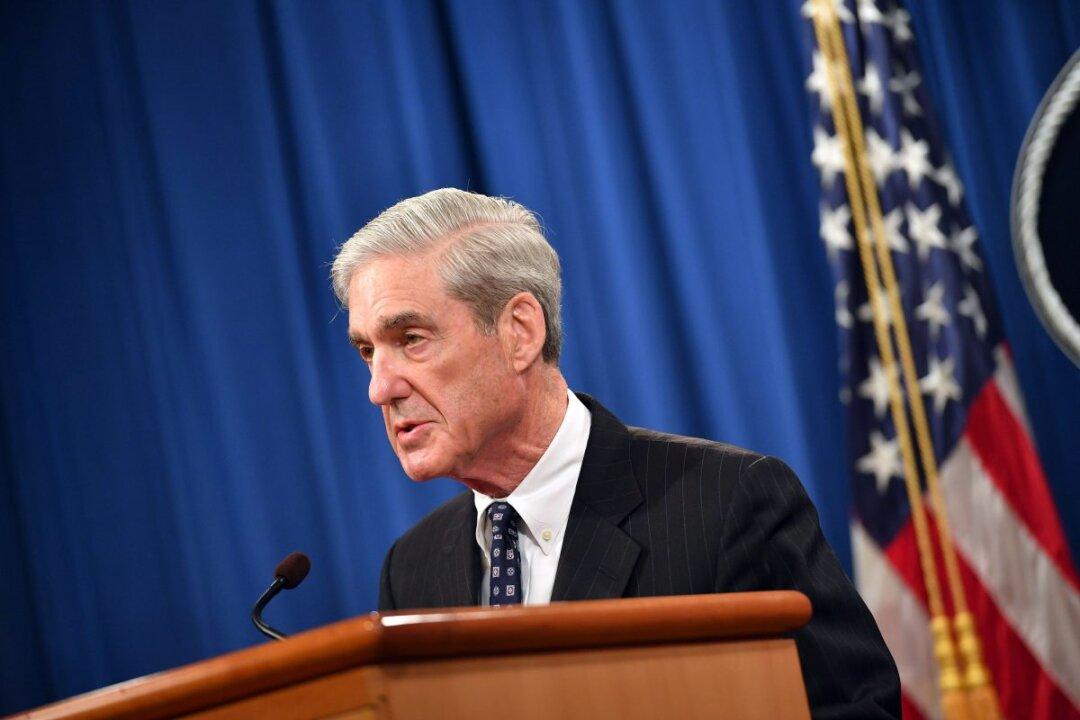A federal judge in Washington issued an order in late May finding that special counsel Robert Mueller broke a local law when he presented allegations as facts in statements about Russia’s role in an alleged social media operation meant to influence the 2016 presidential election.
The judge cautioned Mueller that further statements would have a larger repercussion than a mere warning. Beyond the reprimand, the judge’s order was a minute proceeding in a larger case, yet it underlined the unproven nature of the allegations that made up the core of Mueller’s Russian election meddling narrative.





